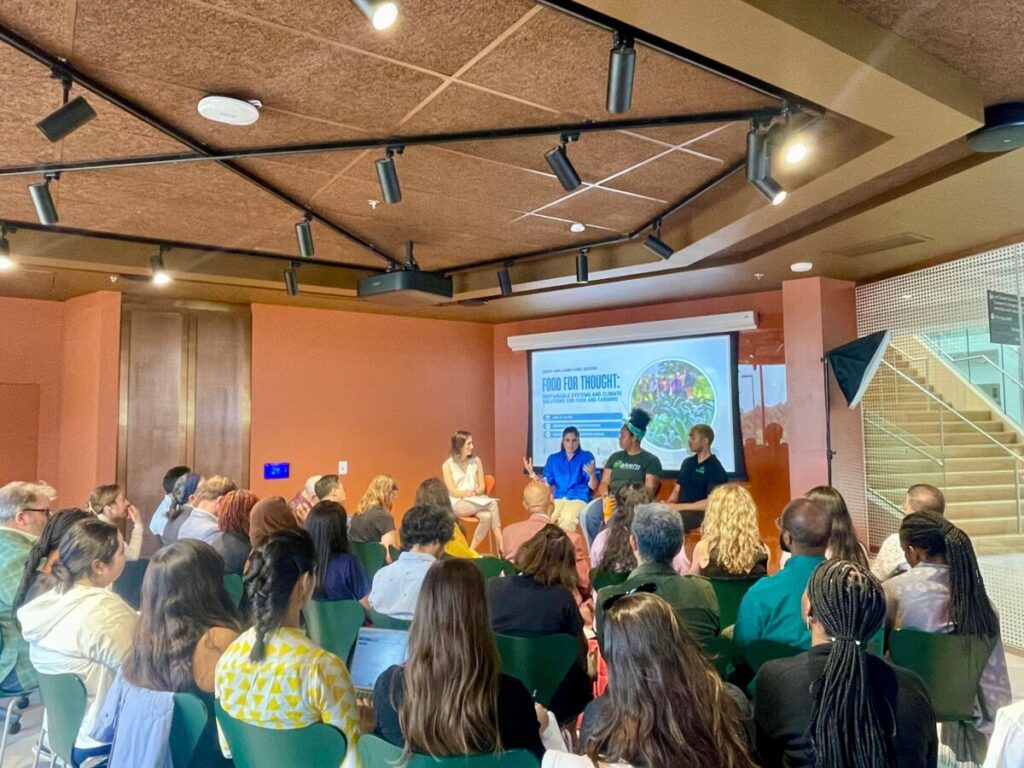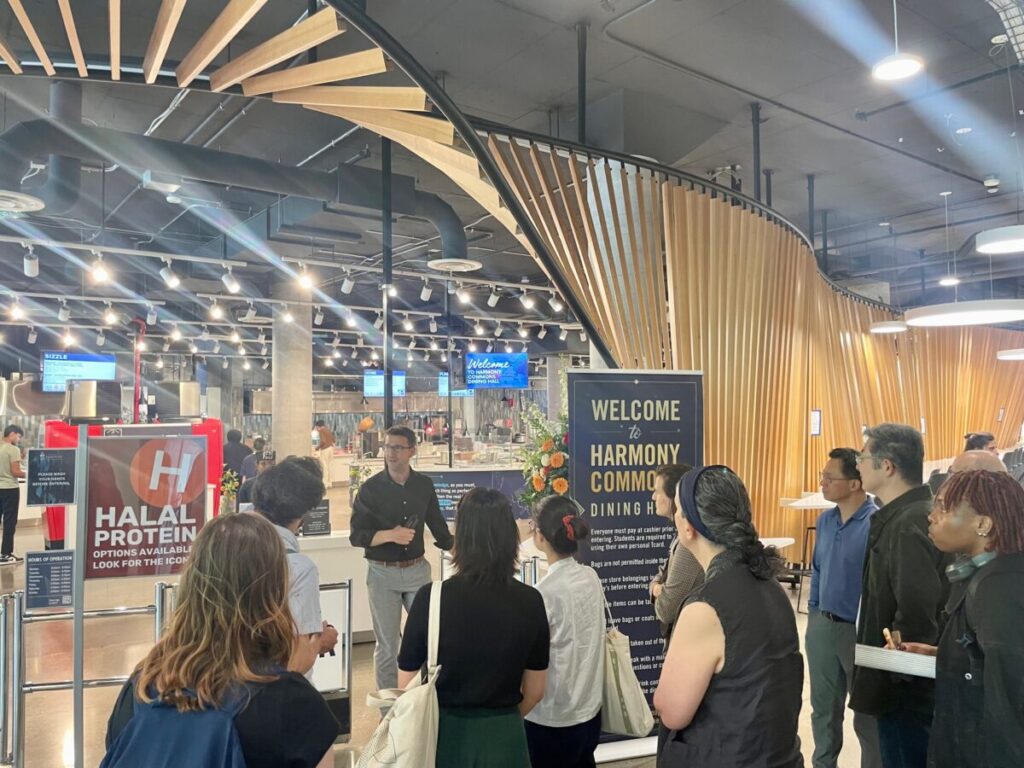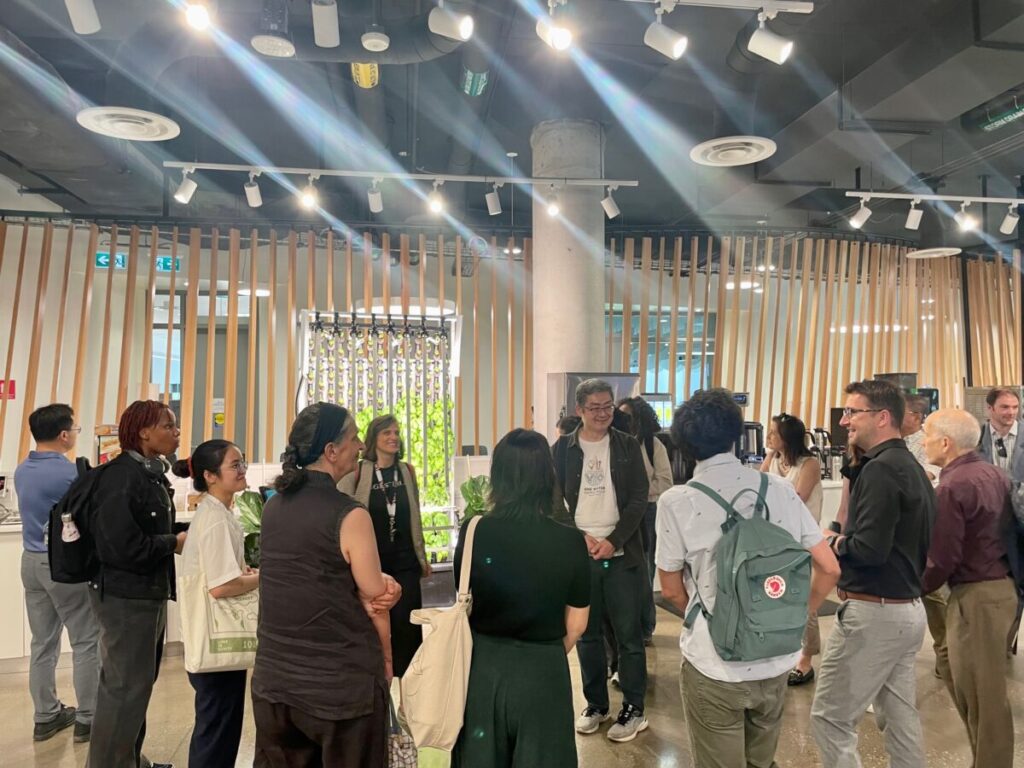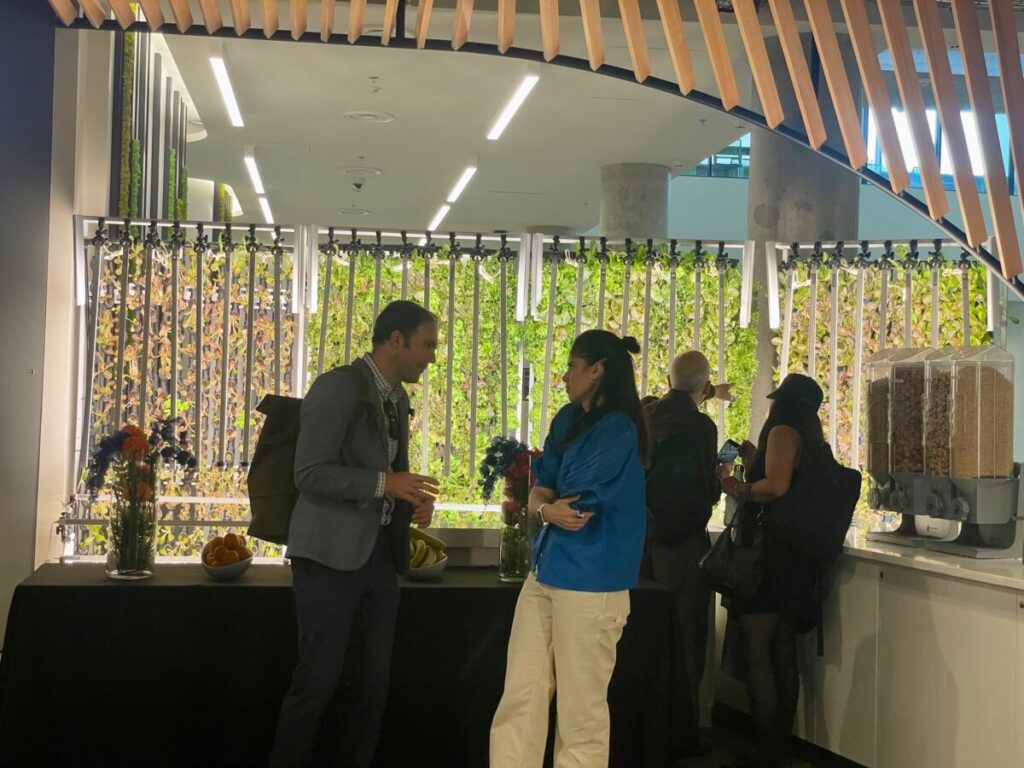
On June 12, Climate Positive Energy and SDGs@UofT hosted an engaging event exploring interdisciplinary climate solutions through the lens of food, farming, and sustainability. “Food for Thought” welcomes guests and panelists to the Sam Ibrahim Centre at University of Toronto Scarborough to discuss the future of agriculture, food security, agri-tech innovation, and sustainable food systems.
Adnan Sharif, Co-Founder and President of Lyrata Hydroponics, offered insights into the SmartSoil technology platform intended to develop novel artificial substrates for hydroculture. The company’s platform offers eco-friendly solutions that emit less carbon than other hydroponic options, use less water than field growing, and prevent soil erosion, enabling users to save money and reduce their environmental impact with our long-term pricing.
Claire Perttula, the Urban Agriculture and Food Programs Manager at Malvern Family Resource Centre (MFRC), shared insights on the soon-to-be 1.2-hectare plot of land located in the Finch hydro corridor, which provides over 35,000 kilograms of culturally relevant produce to the neighbourhood. MFRC’s food and farming team also operates a hydroponic microfarm, runs programs to teach agricultural skills to youth, and holds weekly seasonal farmer’s markets.
Olivia Doggett, a CPE award recipient and PhD student between the Faculty of Information and the School of Environment at the University of Toronto, shared insights on her awarded research examining the intersection of agricultural sustainability transitions and transnational labor equity. She also spoke to worker-centered just transition frameworks for temporary migrant workers in Canadian horticulture.
Climate Positive Energy’s Executive Director Shatha Qaqish-Clavering moderated the discussion, which explored pathways to building a just and equitable future for food systems in Canada – including through partnerships and support available through the University of Toronto tri-campus.



Following the discussion, guests enjoyed an exclusive, behind-the-scenes tour of the dining hall at Harmony Commons – the largest passive certified building in Canada, and largest passive house dormitory in the world. Passive house is a building standard known for its exceptional energy efficiency, especially when it comes to heating and cooling compared to conventional buildings. The building is so energy efficient that the energy it uses to make more than 3,000 meals each day, across dorms and a large dining hall, is less than what two average households use to make food in a day. Harmony Commons, including the kitchen, is also fully electric. Since no fossil fuels are burned for cooking or in heating and cooling the building, it has extremely low carbon emissions.
Climate Positive Energy extends its gratitude to SDGs@UofT, the Sam Ibrahim Centre, UTSC, and the panelists and guests who joined us for this discussion. We look forward to continuing the conversation about sustainable food and nutrition at future CPE events.